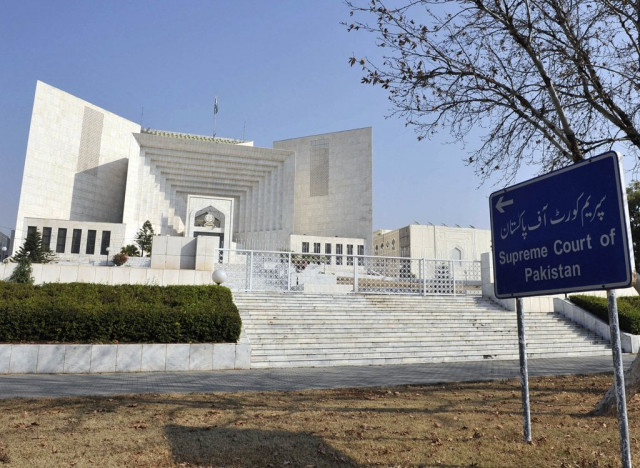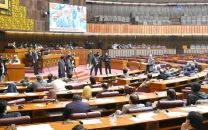Top court slams NAB’s ‘selective accountability’
Supreme Court says anti-graft body spares those it ‘approves of’

The country’s top court on Friday sobered that the National Accountability Bureau was being selective in its proceedings, sparing those it “approved of” and going after others.
Hearing an appeal filed by the anti-graft body against the acquittal of man, Arshad Ali, who faced bank default charges, a three-member bench headed by Justice Mushir Alam noted that the process of accountability must be indiscriminate.
Justice Qazi Muhammad Amin, who is also on the bench, asked the NAB prosecutor as to how could bank default case land in the anti-corruption body’s jurisdiction.
“Was the government sleeping at the time these loans were being given,” he added.
The NAB prosecutor replied that the loan was given without the approval of the board of directors.
The real culprit, he added, was a man named Zulfiqar who had passed away.
To this the judge noted that the process of accountability should not be selective and should be carried out in accordance with the law.
“There are thousands of bank defaulters in the country, Will NAB act against all of them?” Justice Amin observed.
“How many references has NAB filed against bank defaulters? This case does not fall within NAB’s ambit. If the court accepts this case, then NAB will be authorised to take action against all bank defaulters.”
Justice Mushir Alam remarked that courts were worried over the matter of selective accountability.
The prosecutor told the court that the accused had taken a loan of Rs15.6 million but had returned Rs5.6 million through plea bargaining. However, he has been acquitted by a high court and he is currently in jail for his involvement in another case.
Justice Amin said NAB should focus on recovery then but the court would not decide the matter.
The prosecutor then sought time from the court to seek directions on the matter. The hearing was then adjourned for a week.
Earlier this year, the Supreme Court had censured NAB for proceedings in a biased manner and also held it responsible for delay in deciding corruption cases, observing that its officers were not competent enough.
Justice Maqbool Baqar in his verdict had noted that NAB’s discriminatory approach was affecting its image and had shaken the faith of people in its credibility and impartiality.
“The bureau seems reluctant in proceeding against people on one side of the political divide even in respect of financial scams of massive proportion while those on the other side are being arrested and incarcerated for months and years without providing any sufficient cause even when the law mandates investigations to be concluded expeditiously and trial to be concluded within 30 days,” the judgment read.


















COMMENTS
Comments are moderated and generally will be posted if they are on-topic and not abusive.
For more information, please see our Comments FAQ